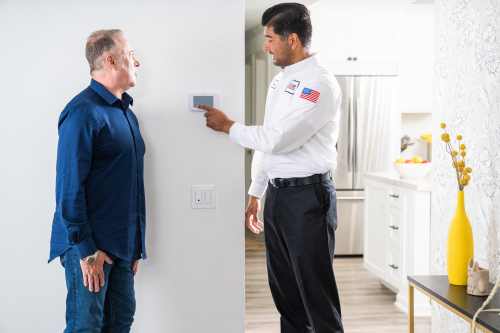Want Your Heat Pumps Lifespan to Last Longer? Here’s What I’ve  Learned
Learned
You know what’s frustrating? When your heat pump decides to call it quits right in the middle of a cold snap or during the steamiest part of summer. I’ve been there, and trust me it’s not fun.
That’s why I want to share what I’ve discovered about the lifespan of my heat pump, and keeping these essential home systems running strong for years to come.
Why Regular Maintenance Isn’t Just a Sales Pitch
Remember how your parents always told you to go to the dentist regularly, even if nothing hurt? Well, they were onto something, and the same principle applies to your heat pump. Just like you wouldn’t wait for your car to break down before changing the oil, your heat pump needs consistent care to stay healthy.
The most important thing I’ve learned is that annual professional service isn’t just another expense, it’s actually saving you money in the long run. When a qualified technician inspects your system, they’re like a detective looking for tiny clues that could signal future problems. They’ll clean those hard to reach parts, check if the refrigerant levels are where they should be, and make sure everything’s running as efficiently as possible.
This wont just save you money it helps to increase the lifespan of your heat pump. And here’s something that surprised me, your air filters need way more attention than you might think. I used to ignore mine until I noticed my energy bills creeping up. Now I check them every month, especially during heavy-use seasons or when my allergies act up. It’s amazing how much difference a clean filter makes not just for your systems lifespan, but for your air quality too.
Daily Habits That Make a Big Difference
Let’s talk about something we’re all guilty of treating our heat pumps like they’re indestructible. I used to crank up the heat when I was cold or blast the AC on sweltering days. But here’s what I’ve figured out, heat pumps work best when you’re not asking them to perform miracles.
Instead of dramatic temperature swings, try keeping things steady. I’ve found that setting my thermostat between 68-72°F in winter and 75-78°F in summer works great. Sure, sometimes I need to throw on a sweater or use a fan, but my heat pump runs so much more efficiently this way.
And while that “Auto” mode might seem convenient, it can actually stress your system if it’s constantly switching between heating and cooling. During those in-between seasons, pick either heating or cooling mode and stick with it until the weather makes up its mind.
Your Heat Pump Needs Some Personal Space
Here’s something I learned the hard way, your outdoor unit can’t work properly if it’s surrounded by nature’s debris. Think about it, how would you feel trying to breathe with leaves and dirt covering your face? That’s basically what happens when your heat pump gets crowded by vegetation or buried under snow.
I make it a point to keep at least two feet of clear space around my outdoor unit. After mowing the lawn, I check to make sure no grass clippings are stuck to it. And in the fall, I regularly clear away leaves that might pile up. If you live somewhere snowy, consider getting a proper heat pump cover just make sure it’s designed specifically for your unit and doesn’t trap moisture inside.
Making Your Home Work With Your Heat Pump
One thing that opened my eyes was realizing how much my home’s condition affected my heat pump’s performance. It’s like trying to heat a tent with holes in it your heat pump will work twice as hard if your house isn’t properly sealed.
I spent one weekend checking for drafts around my windows and doors and added some extra insulation in my attic. The difference was immediate not just in comfort, but in how often my heat pump needed to run.
A smart thermostat has been another game changer for me. It learns when I need heating or cooling and adjusts automatically, which means my system isn’t working hard when it doesn’t need to be.
Becoming a Heat Pump Detective
The best advice I can give you is to get to know your heat pump’s normal sounds and behavior. That way, you’ll notice right away if something seems off. Strange noises are usually your system’s way of asking for help kind of like how your car might make weird sounds before a problem becomes serious.
Keep an eye on your energy bills too. If they start creeping up without explanation, your heat pump might be trying to tell you something’s wrong. The sooner you catch these issues, the easier (and cheaper) they usually are to fix.
The Bottom Line
Increasing the lifespan of your heat pump doesn’t have to be complicated or time-consuming. It’s really about developing good habits and paying attention to the little things before they become big problems. Trust me the time and effort you put into maintenance now will pay off in years of reliable comfort and lower energy bills. Your future self (and your wallet) will thank you!
